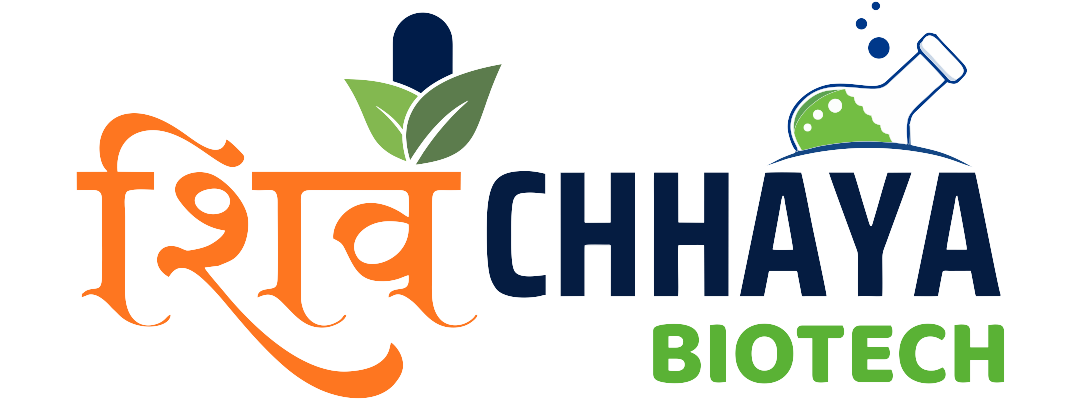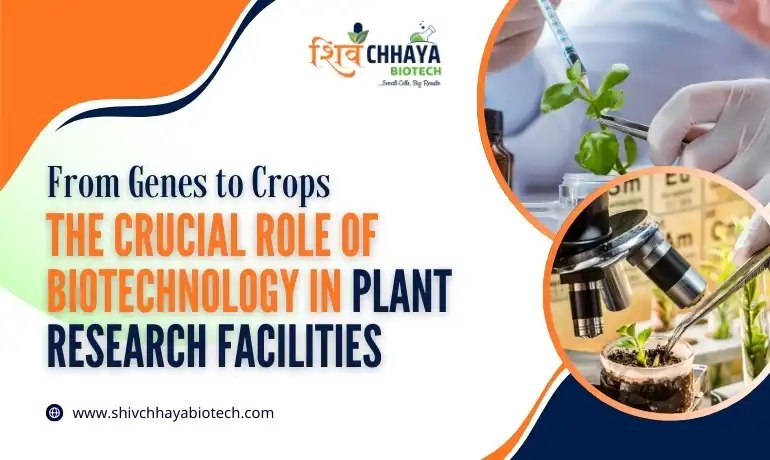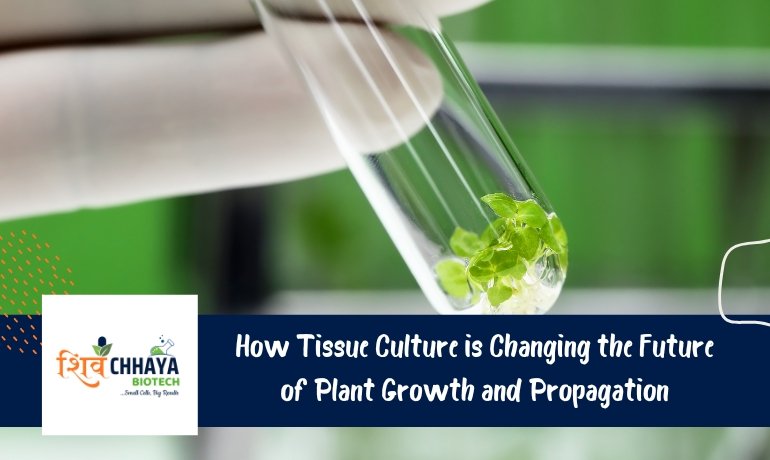In recent years, the advancements in biotechnology have revolutionized plant research facilities, offering new ways to enhance crop yield, improve resistance to diseases, and ensure food security. Biotechnology is playing an increasingly pivotal role in shaping the future of agriculture, driving innovations that are helping us combat the challenges posed by climate change, pests, and limited arable land. With companies like Shivchhaya Bio-Tech Pvt. Ltd. leading the way, plant research facilities have become centers of innovation, where cutting-edge research is transforming agriculture globally.
What are Plant Research Facilities?
Plant research facilities are dedicated spaces equipped with specialized equipment and resources for studying plant genetics, physiology, and growth patterns. These facilities serve as the breeding ground for new technologies and techniques that support plant improvement and agricultural sustainability. From analyzing plant genes to developing genetically modified organisms (GMOs), these research hubs focus on understanding plants at a molecular level to unlock their potential for better crop production.
At Shivchhaya Bio-Tech Pvt. Ltd., we focus on creating innovative biotechnological solutions that enhance crop productivity and sustainability. Our plant research facilities are committed to discovering breakthroughs that can help farmers grow crops that are not only high-yielding but also resistant to environmental stresses.
The Role of Biotechnology in Plant Research Facilities
Biotechnology plays a vital role in transforming plant research facilities. The integration of modern genetic tools and advanced molecular biology techniques is accelerating the process of crop development and improvement. Here’s how biotechnology is influencing plant research and revolutionizing agriculture:
- Improved Crop Yield and Productivity
Biotechnology enables plant research facilities to develop crops that can thrive in challenging environmental conditions, such as drought, extreme temperatures, and poor soil quality. Through techniques like gene editing and transgenics, crops can be modified to increase their resistance to pests and diseases, ensuring higher yields and more efficient food production. With biotechnology, researchers can also enhance the nutritional value of crops, ensuring better food security for growing populations. - Precision Breeding and Genetic Modification
Biotechnology allows scientists to understand and manipulate plant genetics at a detailed level. Through precision breeding techniques like CRISPR, researchers can identify and modify specific genes responsible for desirable traits, such as disease resistance, drought tolerance, or improved nutritional content. These advancements enable plant research facilities to create crops that are tailored to the needs of farmers and consumers. - Sustainable Agriculture Practices
One of the greatest challenges facing modern agriculture is ensuring sustainability. Plant research facilities, through the application of biotechnology, are developing crops that require fewer resources, such as water, fertilizer, and pesticides. This reduces the environmental impact of farming and helps create more sustainable farming systems. Biotechnology can also help in soil conservation by developing crops that enhance soil quality and reduce the need for chemical inputs. - Disease Resistance and Pest Control
Disease and pest attacks are among the biggest threats to crops worldwide, often leading to significant losses in agricultural production. Biotechnology allows researchers to identify genes responsible for disease resistance and transfer them into crops, creating plants that can better withstand attacks from viruses, bacteria, and insects. This reduces the dependency on harmful pesticides and reduces the environmental impact of pest control. - Enhancing Crop Resilience to Climate Change
Climate change is having a profound impact on global agriculture. Changes in temperature, rainfall patterns, and the increased occurrence of extreme weather events pose significant challenges to crop production. Biotechnology is playing a key role in developing crops that are resilient to these changing conditions. For example, plants can be engineered to withstand higher temperatures, prolonged periods of drought, and flooding. This helps ensure that crop production remains stable, even in the face of unpredictable climate patterns. - Development of GMOs for Increased Crop Diversity
Genetically Modified Organisms (GMOs) have become an essential part of plant research facilities. Through the creation of GMOs, scientists can introduce beneficial traits into crops that were previously unattainable through conventional breeding methods. This could include enhanced resistance to herbicides, improved shelf-life, or increased nutritional content. GMOs allow for the rapid development of new crop varieties that can meet the evolving needs of consumers, farmers, and the global food system. - Improvement of Crop Storage and Shelf Life
Biotechnology also plays a crucial role in improving the post-harvest handling and storage of crops. By developing crops with extended shelf lives, biotechnology helps reduce food waste by minimizing spoilage during transportation and storage. Crops such as tomatoes, bananas, and potatoes can be modified to stay fresh longer, thus improving the overall efficiency of the food supply chain. - Innovation through Plant Tissue Culture and Cloning
Plant tissue culture is another area where biotechnology has made significant strides. This technique allows researchers to grow plants from small tissue samples in a controlled laboratory environment. It is particularly useful for propagating plants with desirable traits or for conserving endangered plant species. Tissue culture and cloning also allow for the rapid multiplication of high-value crops, ensuring that the best varieties are made available to farmers.
Future of Plant Research Facilities
The future of plant research facilities is closely tied to the continuous advancement of biotechnology. In the coming years, these facilities will focus more on integrating advanced technologies such as artificial intelligence (AI), machine learning, and big data analytics to predict crop performance, analyze environmental variables, and optimize farming practices. As plant research facilities evolve, they will become even more essential in creating the sustainable agricultural systems required to feed a growing global population.
At Shivchhaya Bio-Tech Pvt. Ltd., we are committed to being at the forefront of these technological advances, helping shape the future of agriculture by integrating biotechnology solutions into our research practices.
Why Choose Shivchhaya Bio-Tech Pvt. Ltd.?
Shivchhaya Bio-Tech Pvt. Ltd. is a trusted name in the field of plant biotechnology. Our cutting-edge plant research facilities are equipped with the latest technologies to drive innovations in crop improvement. Whether it’s enhancing crop yield, improving disease resistance, or developing sustainable farming solutions, we are dedicated to pushing the boundaries of plant biotechnology to benefit farmers, consumers, and the environment alike.
Contact Us
If you are interested in learning more about our research and the role of biotechnology in improving crop production, feel free to reach out to us. At Shivchhaya Bio-Tech Pvt. Ltd., we are always open to new collaborations, partnerships, and inquiries.



